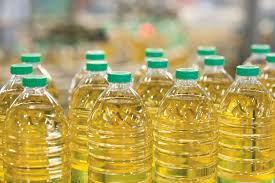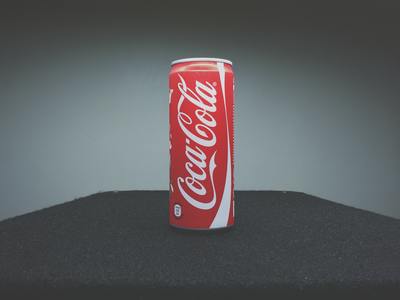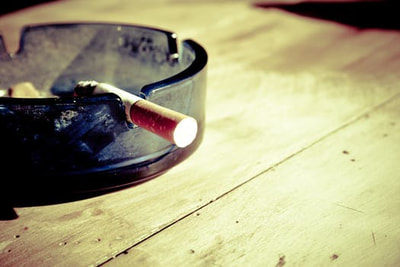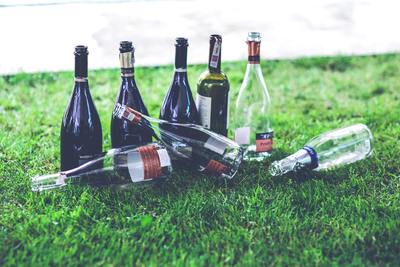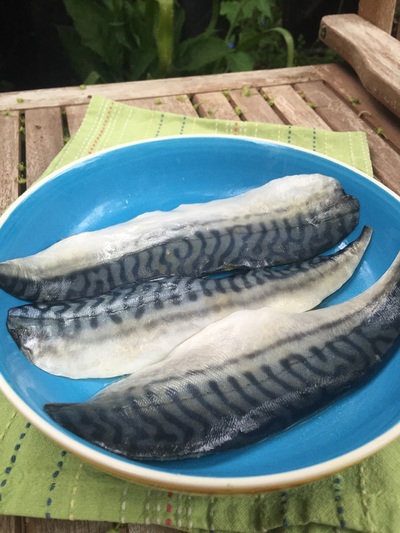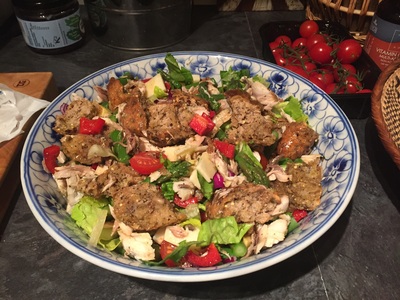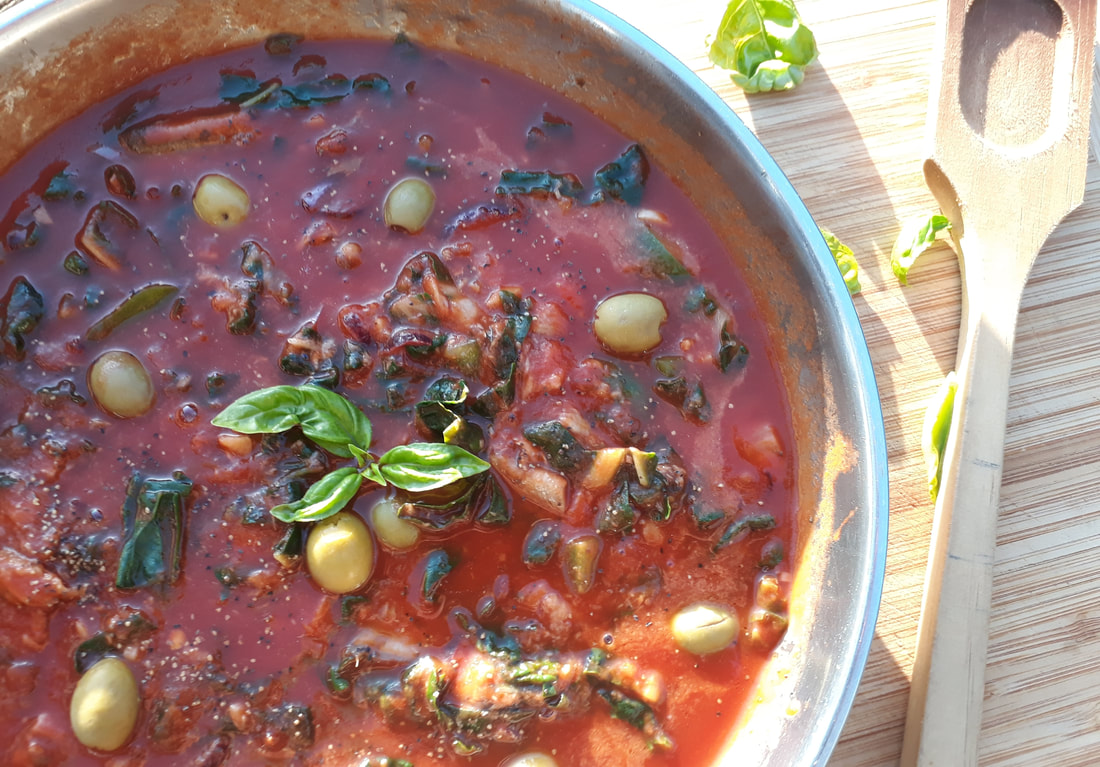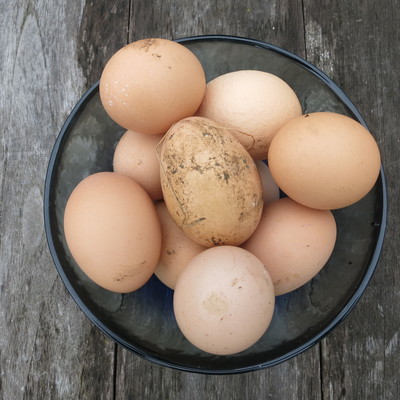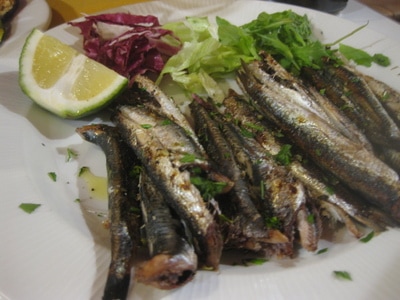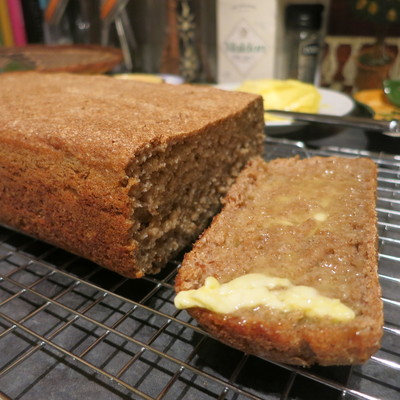Cholesterol: Why you need not fear eggs and butter, and what you can do about elevated LDL (part 2)13/11/2018 In part one of this series, we’ve looked at cholesterol being a natural substance produced in the human body every day, and one vital for health. Now, let’s talk about LDL cholesterol: how it can become elevated in your blood and what you can do about it. We’ll also look at the difference between LDL (so-called bad cholesterol) and HDL (so-called good cholesterol).
0 Comments
 I lived with moderate to severe OCD for 20 years. It eventually became so debilitating that leaving my house became a struggle. After finally deciding enough was enough and committing to working on all aspects of my mental and physical health in my early 30s, I experienced 80–90% reduction in my symptoms of OCD. Nutrition was one of the tools that helped most. This led to me studying to become a nutritionist, and eventually writing my ebook, Nutrition for Your OCD Recovery. It’s available in Kindle and pdf formats here. In this article, I discuss the types of fats that nourish your nervous system and your mental health. And I'll share how mega-dosing with supplemental omega 3 supported my recovery from OCD. Serves 2, prep time 30-40 mins
Coconut oil (for frying) and olive oil (for baking and dressing) 4-5 fresh or frozen mackerel fillets – availability may vary by season and region/country Dense, wholegrain bread for the croutons – I use rye sourdough, use GF bread if you prefer 1 lemon 100g Gruyere cheese, cubed (if you’re dairy-free, no worries, skip this...if you eat dairy, the Gruyere does add a special flavour) 1 romaine lettuce, finely chopped 8-10 cherry tomatoes, halved 1 chopped red pepper (small cubes) 8 spears of steamed asparagus, cut into thirds ¼ red onion, chopped finely (add more if you really love onion!) -Heat the oven to 160-degrees Celsius and cut the bread into chunky pieces (croutons). -Toss the bread in olive oil, sea salt, and pepper. Bake on a lower heat for about 30 mins (maybe less if using GF bread), to get the croutons really crunchy. -Fry the mackerel fillets in coconut oil for about 3 mins each side, on medium to high heat. -While these cool, prepare the salad ingredients: steam the asparagus spears and chop the red onion, red pepper, romaine lettuce, cherry tomatoes and cooked asparagus, and cube the Gruyere cheese. Combine all these ingredients in a large salad bowl. -Flake the cooked mackerel fillets into the salad, using your hands. -Add the croutons and combine all ingredients. Dress with a generous squeeze of fresh lemon juice and a good drizzle of olive oil, sea salt and some freshly cracked black pepper. If you fancy, you could add two or three finely chopped anchovy fillets to the salad. Here's to omega 3 - the highly beneficial fat found in small, oily fish like sardines. Omega 3 plays so many important roles in supporting your health, including:
Omega 3 fats also show promise for reducing the symptoms of depression, post-natal depression, bipolar disorder, OCD, ADHD, and schizophrenia. And with mental health problems on the increase, it's notable that many of us are deficient in omega 3, largely because of the way our food choices have changed so much in the last several decades. Because omega 3 is a nutrient we absolutely need – our bodies cannot make it – and because it can help support mental health, this article introduces omega 3 and discusses how you can get it from foods and what to look for when buying a supplement.
So what is omega 3? Omega 3 is a type of fat (or lipid). In the lipids family, omega 3 is a polyunsaturated fatty acid. There are several names for omega 3, which can be confusing. It is commonly referred to as omega 3, Essential Fatty Acids, EFAs, fish oil, alphalinolenic acid (ALA), eicosapentaenoic acid (EPA), and docosahexaenoic acid (DHA). If you are ever looking for omega 3 supplements and confused about names, fish oil and/or flaxseed oil are what you are looking for. There are different types of omega 3: ALA, which comes from plant sources such as flax seeds, and EPA and DHA, which are found in animal and ocean sources such as fish, eggs and micro-algae. The body can convert ALA to EPA and DHA, but the conversion rate is low. Ideally, you want to get all three forms of omega 3 in your diet. We need to get omega 3 from foods because the ‘essential’ in ‘Essential Fatty Acids’ refers to the fact our bodies cannot make omega 3. We can only obtain omega 3 from food. So how can we get omega 3 from foods? The following are good sources. Vegetarian sources
Animal sources
What should I look for in an omega 3 supplement? For flaxseed oil, you ideally want one that is organic and has been stored in the shop’s fridge – not on the shelf. Because of its twisty atomic structure and lack of hydrogen bonds, omega 3 goes rancid easily if exposed to heat. Shop staff will sometimes tell you flaxseed oil does not need to be refrigerated but this is not true. In a fish oil, you want a product that states on the label that it has been filtered for heavy metals and PCBs (polychlorinated biphenyls/industrial chemicals) – common pollutants in the oceans that end up in fish. If the label does not clearly state this, don’t buy it and find a product that has been filtered. Capsulated fish oil (also called capsules and soft gels) can help keep omega 3 from going rancid by limiting exposure to oxygen. How should I store my omega 3 supplements? Always store fish oil and flaxseed oil in the fridge to stop them going rancid. Don’t leave them on the kitchen bench/worktop or shelf. And finally, what do I need to know about taking omega 3 supplements? Dosage varies from person to person depending on your health condition. I have personally taken very high doses to support my recovery from OCD with good results, but not everyone would benefit from such high doses. If you are taking warfarin or antiplatelet drugs, speak to your doctor before taking omega 3 as the risk of excessive bleeding may be increased. A guideline for adults taking omega 3 is to take two tablespoons of flaxseed oil per day, separately (one in the morning, one at lunch or night). For fish oil, 1-3g can be taken daily. Children need lower doses, and toddlers and babies even less. Discuss this with your nutritionist if giving your child, toddler or baby omega 3 supplements. It’s a good idea to take your omega 3 supplement with protein (such as meat, fish, eggs, beans, lentils), because protein foods stimulates the release of hormones that stimulate bile production. Bile is produced by the liver and is needed to break down fats we eat. WARNING: Individuals affected by the condition Pyroluria may have adverse reactions to omega 3, and experience a worsening of mental and physical symptoms. If you feel worse for taking omega 3 supplements, talk to your nutritionist. |
